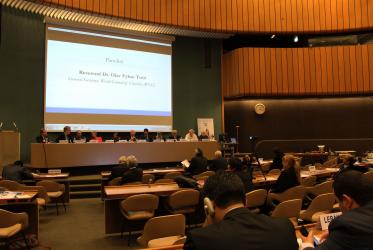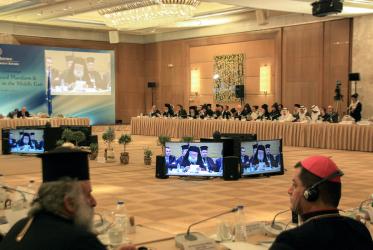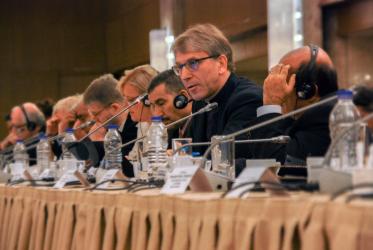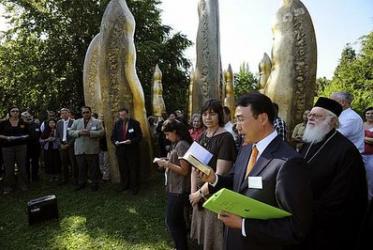Displaying 1 - 20 of 20
The cry of the Papuans in Indonesia
14 November 2019
WCC joins calls for a peaceful and just transition in Lebanon
29 October 2019
A moment in ‘Time’: an interreligious vision in Erlangen
20 December 2018
Christian and Muslim promote spiritual solidarity
14 June 2017
Islam and Christianity: finding the common ground
16 March 2017
Strong bridges needed more than ever
21 December 2016
Common prayer in Geneva responds to acts of violence
16 November 2015
International conference addresses challenges in the Middle East
22 October 2015
Churches must be "salt of the earth"
31 August 2009












